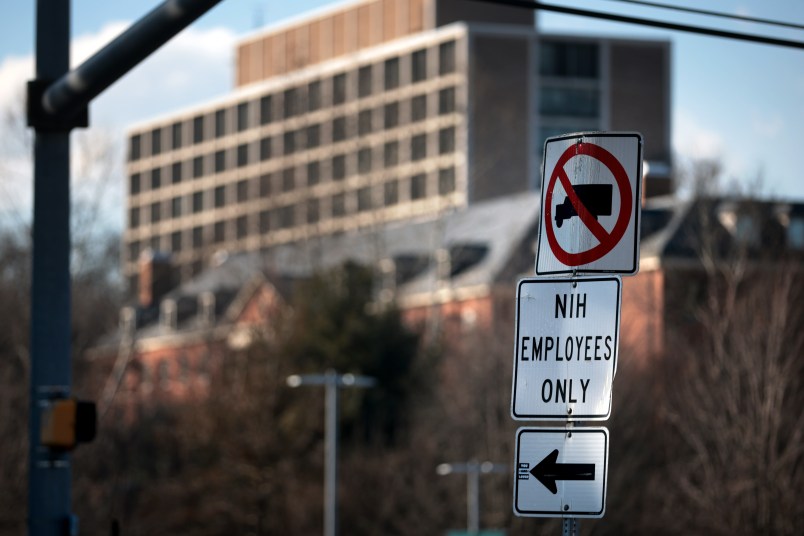There’s one point that has come up, sometimes explicitly but more often by what isn’t said, in my many conversations with civil servants at HHS and especially at the core medical research agencies within it. At the simplest level, they’re not lawyers. But the issue requires a little more explanation because obviously most people aren’t lawyers in the other departments and agencies either. Outside the Department of Justice, none of these agencies are legal agencies or departments per se. But in most of the rest of the government, lawyers are ubiquitous and much of the work culture is structured around the work and ideas of lawyers. This is probably intuitively clear for most of you who’ve either reported on the federal government or worked within it. But it’s worth stating explicitly and thinking about the impact this has had in recent weeks.
Again and again in conversations with people at NIH, NCI and other public health or research agencies within the government the same basic point comes up: the people immediately affected by the events of the last four weeks have very little idea what the relevant law is, the legal standing of the actions being taken or who to talk to about any of it. I’ve had a few sources ask if I could organize some lawyers to create what amounted to a FAQ about the relevant law. I haven’t had a chance. But someone should.
I don’t know the precise history or how the origins of these agencies played into this. At a basic level they’re research institutions, which happen to be housed within the government and science labs don’t work that way. But regardless of why it is, that it is seems pretty clear to me. I’ve heard from enough people in that world to feel confident in saying that the civil servants in the medicine/research parts of the federal government have much less of a sense of the legal context they’re operating in and have fewer people with that knowledge proximate to them than people in other parts of the government.
One reader with knowledge relevant to these questions dropped me a line late last week addressing a distinct but related question. I found it very illuminating.
I can perhaps speak to the “why isn’t the calvalry” here piece.
Part of the issue is that the type of litigation that is needed is emergency litigation of the type that you get in civil rights cases. You need a temporary restraining order, and to get those you need a pre-drafted motion shell you can execute very quickly, draft declarations you can swap in and out as needed, and to know what the individual judge’s procedure looks like. However, none of this is really written down, it relies on lawyers who do this a lot passing on the knowledge to each other. And the types of lawyers that work with regulatory agencies and have the subject matter expertise and relationships largely do not litigate, and when they do are not doing emergency litigation in federal court. There’s just not a model there, they haven’t had the practice and don’t have the institutional knowledge. And separately, as a lawyer who does health care work, there are almost no lawyers (regulatory or litigation) that are comfortable with health care.
The other part of issue is, as you mentioned, standing. The people with the clearest standing and ability to sue are grantees at research institutions. But university’s general counsel’s offices are typically responding to being sued, not bringing cases. And when do they litigate, many seek different outside counsel for each case, so they don’t just have someone on call who can file cases overnight. And of course, this assumes that the university administration is willing to risk a fight with DOGE.
The next line of defense is AGs representing state universities, but they have limited staff capacity and the suits related to civil rights will likely come first in line.






